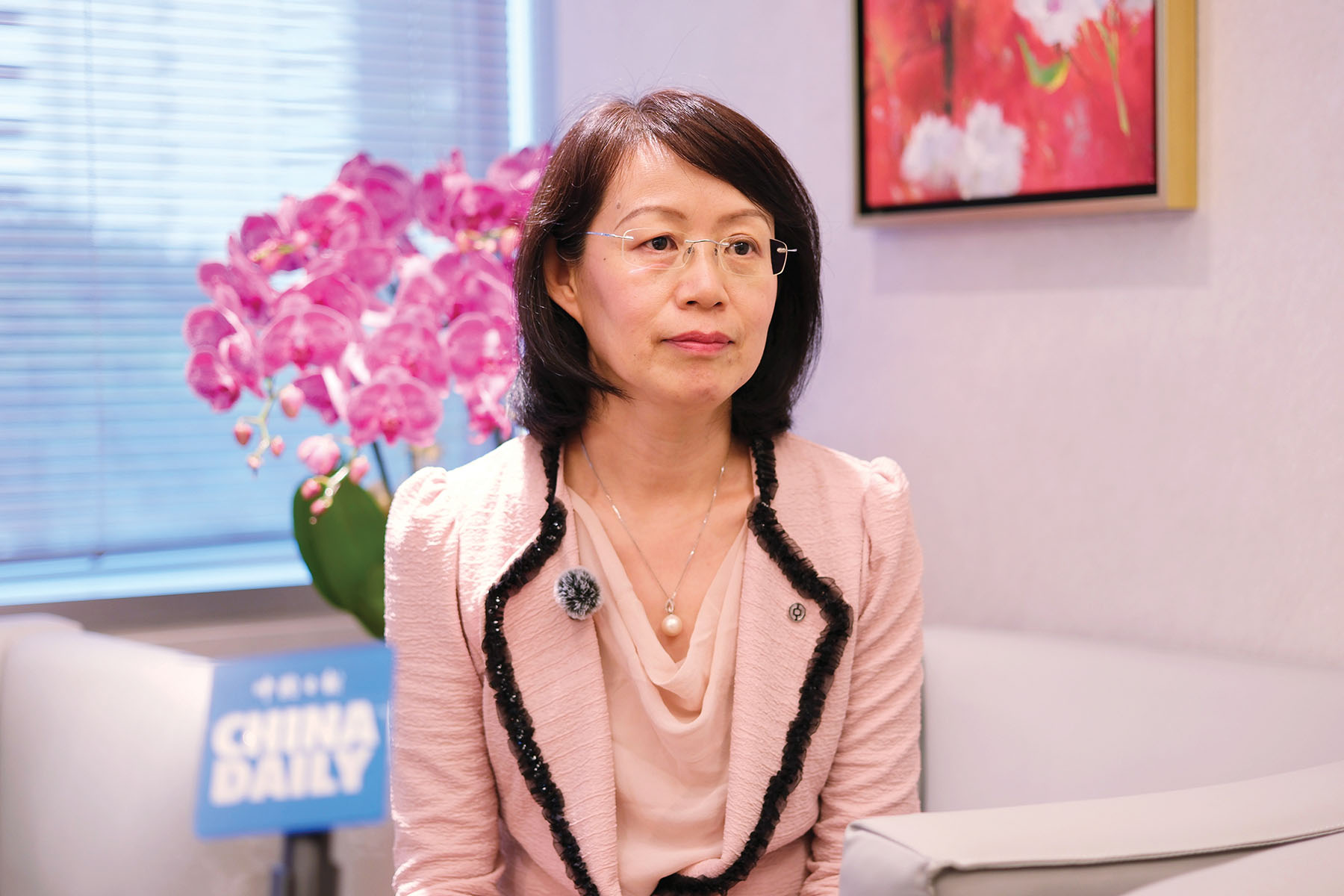
Hong Kong should step up efforts to attract more international corporations for secondary listings, as a proactive approach to strengthen links with major markets and amplify its financial influence worldwide.
 Zhong Hong, chief economist at Bank of China (Hong Kong), made her suggestion during an exclusive interview with China Daily. She emphasized that “internationalization is one of the most significant advantages of Hong Kong”.
Zhong Hong, chief economist at Bank of China (Hong Kong), made her suggestion during an exclusive interview with China Daily. She emphasized that “internationalization is one of the most significant advantages of Hong Kong”.
“Hong Kong should continue to broaden financial cooperation and attract more international capital, top-tier institutions, and talents to develop businesses,” she added.
READ MORE: HK bourse posts record quarterly profit on trading, listings boom
The stock market serves as a platform for the special administrative region’s engagement with the global financial community. Zhong said Hong Kong should consider “accelerating international cooperation on listing rules and continuing to promote mechanism reforms”.
Her remarks come as cooperation between international exchanges has been expanding. The Hong Kong Exchanges and Clearing Ltd, for instance, has enriched its List of Recognised Stock Exchanges to include 20 exchanges across 18 countries, with the Stock Exchange of Thailand joining the roster in March.
This arrangement facilitates companies listed abroad to seek secondary listings in Hong Kong, which could give foreign enterprises access to a broader regional and international investor base.
Zhong also noted the potential for cooperation on exchange-traded funds (ETF), suggesting that Hong Kong could pursue more agreements with overseas exchanges for ETF cross-listings.
In recent years, “a series of cross-listed ETF products were launched between Hong Kong and Saudi Arabia, achieving remarkable breakthroughs in various sectors,” she said.
In October, Saudi Arabia launched its first two ETFs tracking Hong Kong stocks, enabling Saudi investors to gain exposure to a basket of Hong Kong equities. Such cooperation could help attract more Middle Eastern capital to the Hong Kong market.
According to the city’s Securities and Futures Commission, these are the largest ETFs on the Saudi Exchange, with a market capitalization of HK$14.5 billion ($1.86 billion) as of May.
Adding to the momentum, Hong Kong launched Asia’s first ETF tracking Saudi Arabia’s Islamic government bonds last month.
The SAR government has also signaled its determination to further internationalize and diversify the city’s stock market. Efforts are underway to attract companies from the Middle East and Southeast Asia to list in Hong Kong.
According to government data, Chinese mainland companies account for nearly 60 percent of listed companies in the city and around 80 percent of both trading volume and capitalization.
Beyond equities, Zhong identified deepening cooperation within the monetary system as another key strategy to enhance Hong Kong’s role in the global financial exchanges.
ALSO READ: Asia’s first investment-grade government sukuk ETF listed in HK
“Hong Kong could leverage the network advantages of its renminbi Real Time Gross Settlement (RTGS) to promote the networking and coordination between Hong Kong and Association of Southeast Asian Nations members’ payment systems,” she said.
The city could establish a regional renminbi payment and clearing network integrated with local payment systems, which Zhong said would lay the foundation for closer monetary cooperation.
The renminbi RTGS system is an important part of Hong Kong’s financial infrastructure, enabling real-time interbank renminbi payments while also handling bulk clearing and settlement of transactions. Currently, more than 60 overseas banks and financial institutions are involved in this system.
Contact the writer at irisli@chinadailyhk.com


